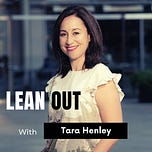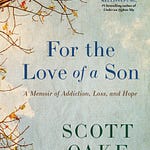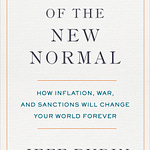One of the themes of the Lean Out podcast is open inquiry. And my guest on the program today has some thoughts on this. He’s concerned about the suppression of discussion and debate and viewpoint diversity in the field of addiction — and he points to specific actions from the B.C. government and the B.C. Centre on Substance Use. But, as we’ll learn at the end of today’s episode, both view the issue quite differently. (See below for statements.)
Julian Somers is a clinical psychologist, a distinguished professor at Simon Fraser University, and the director of its Centre for Applied Research in Mental Health and Addiction.
Julian Somers is my guest, today on Lean Out. Transcript to come for paid subscribers.
STATEMENT FROM BRITISH COLUMBIA CENTRE ON SUBSTANCE USE:
Presentations at conferences that influence public policy and clinical practice should be evidence-based and peer-reviewed. Concerns were raised with the subject of this particular conference presentation, which was based on a self-published rapid review of safer supply that was not peer-reviewed and, using a well-established measurement tool to assess the methodological quality of such reviews, was rated as being of “critically low-quality.” Among the primary issues with the review is a flawed search strategy that resulted in a number of studies unrelated to safer supply being included, and a number of important and highly relevant studies being excluded. Beyond these methodological concerns, other issues are evident with this review, including the misrepresentation of study authors’ expertise, a lack of a public health perspective, and the failure to acknowledge the current state of safer supply research and other publicly available data.
BCCSU LETTER ON THE RAPID REVIEW OF SAFER SUPPLY
STATEMENT FROM B.C.’S MINISTRY OF PUBLIC SAFETY AND SOLICITOR GENERAL:
This province strongly believes in the value of integrated data and academic research. The motivation to create a new Data Innovation Program (DIP) and transition the data previously stored within the Inter-Ministry Evaluation Database (IMED), to which Dr. Somers had exclusive access, was to establish a program that enables all academics in the province access to integrated data to conduct projects for public benefit.
The IMED steering committee began discussions about transitioning to the DIP in the fall of 2020. At that time, the chair of the committee spoke by telephone with Dr Somers and socialized the idea of this transition, including the rationales of allowing more academics in the province to access integrated data and supporting increased data collection from across various sectors of government.
The DIP brings together all the data from the previous IMED and more, and has enabled important research into homelessness, basic income policies, mental health and other social factors. Unlike the IMED, the DIP allows for equitable access to data for all academics who submit a research proposal, which BC Corrections has encouraged Dr. Somers to do, so that he may continue his important work.














Share this post